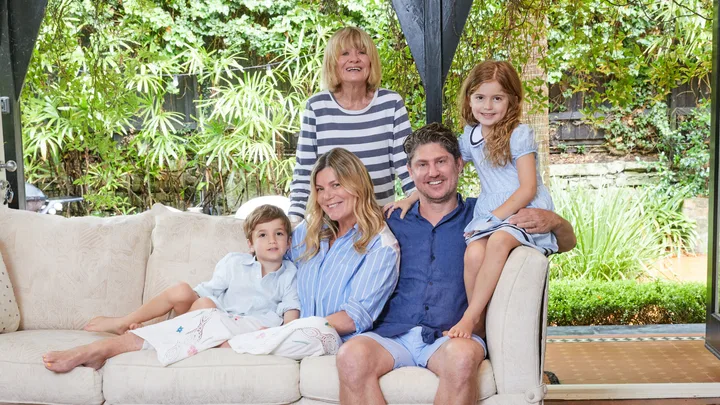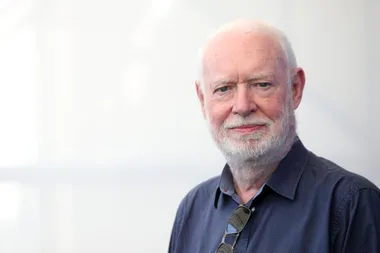This is a story that begins with a Sacher-Torte. “Not a small one. It was one of the big ones,” says Margaret Pomeranz, who, at 80, still has that glorious, playful manner, fierce conviction, and the Marianne Faithfull smoker’s laugh that became so familiar over almost 30 years on The Movie Show and At the Movies with David Stratton. But back to the cake. In her twenties, Margaret had been studying psychology and German at university, and had taken a two-year hiatus to live and work as a journalist in Vienna.
“You know how you have points in your life when you make a decision, and it sort of determines the other things in your life? Doing German at university led me to Vienna,” she says. And Vienna changed everything. When it was time to head home, a Viennese friend asked Margaret if she would take a cake to a relative who lived in Sydney.
“I sat with that Sacher-Torte,” she says, raising eyes heavenward, “a chocolate cake from the Hotel Sacher in Vienna, on my lap all the way back to Australia. You know how people say, ‘Oh, I’ve got a relative, give them a ring,’ and you never do. Well, because I had this bloody cake, I had to do it.
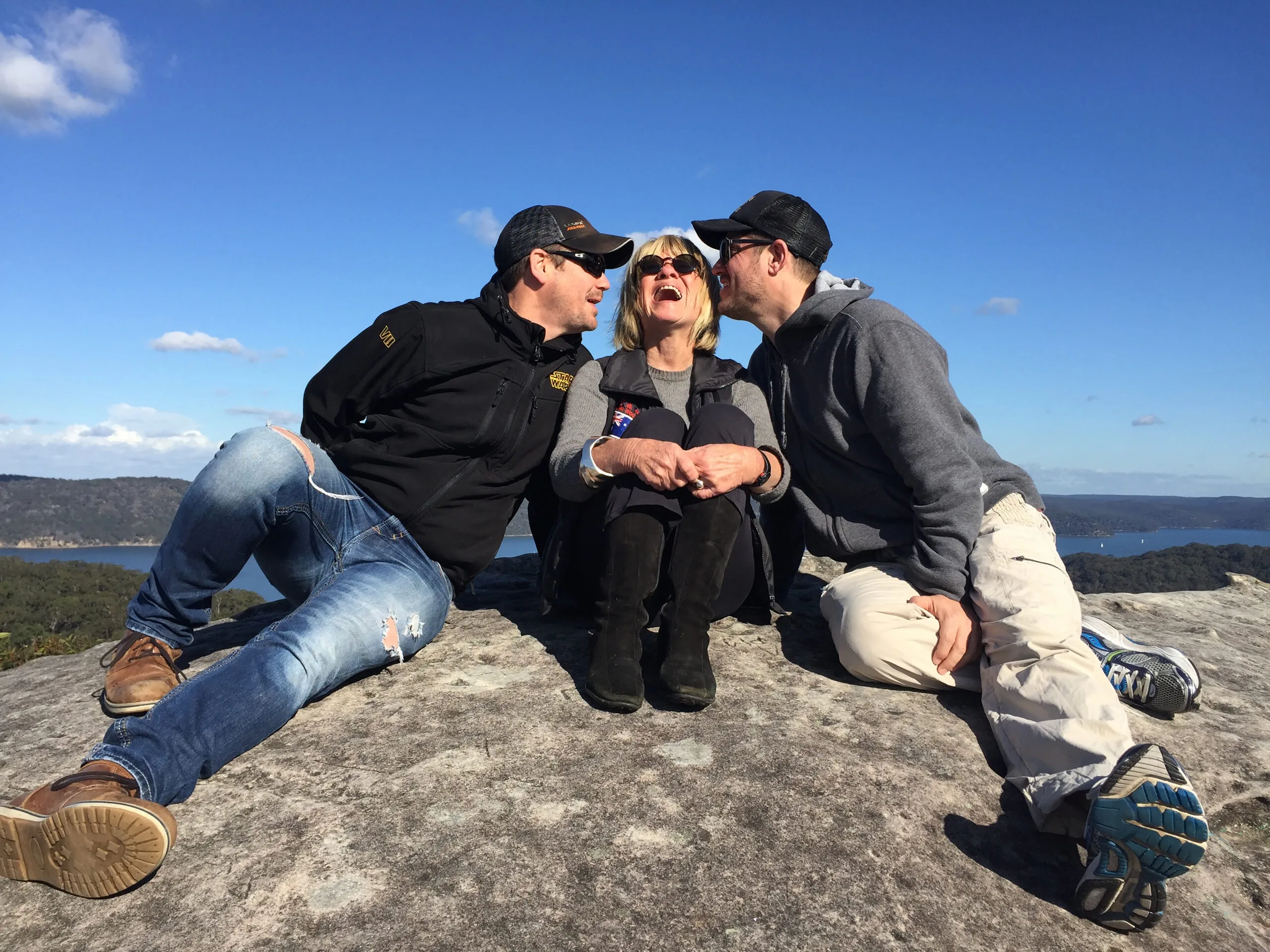
It started with cake
“His name was Hans. I gave him the cake, then he asked me out to dinner, and he asked me to go sailing, and he asked me to a party. I had been away for two years, I’d lost a lot of contacts, and all of a sudden, I was thrust into his life.”
Margaret had been involved in a very significant relationship in Vienna – with an Austrian Jewish man named Peter Rindle who had fought with the French resistance and been awarded a medal by Charles de Gaulle. “It was actually a relationship that was the making of me,” Margaret says. “He believed in me, gave me confidence. He was an intellectual.” And she had thought she would finish her degree in Australia, then go back to him. But Hans Pomeranz was here, and they both loved films and, “yes,” she admits, “I got sidetracked by Hans. He was very charismatic.”
Hans was a talented young film editor. “He was making a film at that stage, based on a play by Ken Cook, who wrote Wake in Fright.” He was also setting up a post-production facility, Spectrum, which Margaret has described as a “vortex” for Australian film, and this year celebrates the big 6-0. Hans gave crucial support and encouragement to the new wave of local directors (including Phillip Noyce, Gillian Armstrong and Peter Weir) who created an Australian film renaissance in the 1970s. “We saw a lot of movies together,” Margaret remembers. “We would always go to movies for the director: Fellini, Truffaut, all the new wave people of French and Italian cinema.”
Going to NIDA
Inspired, she enrolled in the playwright’s course at NIDA and began to write scripts, and she and Hans were married. Hans was Dutch. Like Peter, he was Jewish and had grown up in Europe during World War II. He’d spent much of the war separated from his parents, disguised as the “son” of a Protestant minister.
“It was a terrible time for his whole family,” Margaret explains. “His sister died in Auschwitz. So there was a real, you know, hole in the centre of that family. It was a very traumatic time for him, and I think it scarred him … He had an anger in him that was sometimes inexplicable. But I think you’ve got to take account of people’s backgrounds, if you love them … You just wonder why the world keeps on going to war.”
Margaret and Hans had two sons, Josh and Felix. Josh remembers those years, when they were together, very warmly.
“We’d have these dinner parties, and the most amazing people would sit around the table and have the most robust conversations in the night. Even as kids, we were allowed to sit there and listen and join in. It was all about food and family and interesting people,” he says.
The couple separated in 1984, but remained close – all four remained an eccentric, affectionate, extended family – until Hans’ death.
“My dad moved out when I was 12, for whatever reasons,” Josh says, “and he moved around the corner. He’d come down for dinner every night, and we’d have happy families, and then he’d go off and do his thing.” Josh believes his parents were “soulmates”.
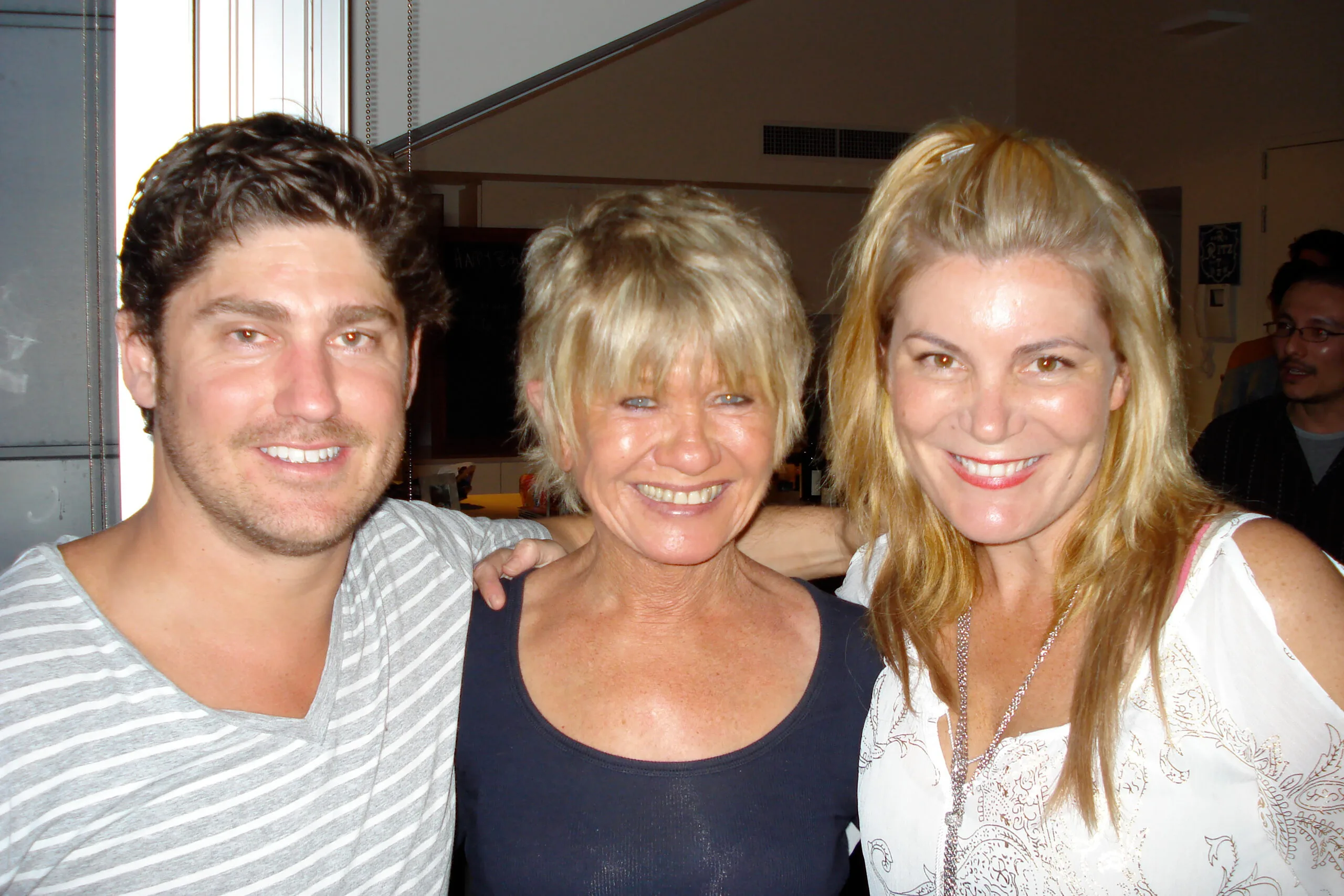
Modern family
“I loved him,” Margaret admits. “I think he loved me in a way as well, and we had these two children together. We never bothered to get a divorce until very, very late. There was just no need for it. You know, we separated, but he called me every day, he came to dinner every night, and then got up and left when he got irritated with us. But he was an enormously generous man, really. So generous in so many ways.”
Josh says both his parents dedicated a lot of time and emotional effort to making sure neither he nor Felix felt as though they lived in a “split” family.
“Mum would drop anything for us,” he says. “So when we were at school, if we needed help with our homework, she was always there. We grew up in Mosman, and we’d have to go play soccer up on the Northern Beaches, and they’d divide and conquer: Dad would go with one of us, and Mum would go with the other. Soccer games and cricket games. Dad was my soccer coach growing up. We always had a great relationship.”
However, in his forties, Hans was plagued by heart problems.
Margaret suspects that “a lot of the stress he went through in the war manifested itself in his ill health. He had a triple bypass when he was 40, and he was fine after that for a number of years. Then, in the late ’80s, he was told to get his affairs in order because his heart was failing.”
Close call
“Dad died in front of me in 1993,” Josh explains. “We were at St Vincent’s. I was talking to him. He was in a hospital bed in the ICU, and his head started twitching, and then all the alarms went off, and the doctors came in and they were just like ‘clear’.”
They had the defibrillator out.
“I left the hospital and drove back to Mosman. Mum was in Cannes and I rang her and said, ‘I think Dad just died’. She said, ‘Where are you?’ And I said, ‘I’ve just driven home’. She said, ‘Why are you at home? You should be at the hospital.’” Josh, who was just 20, drove back. His father was alive, but he was told to start making funeral arrangements.
“Then, that night,” he says, “a young girl had a car accident in South Australia, and they flew her heart up, and the Victor Chang unit did one of the very early heart transplants on Dad. It was so sad for that young person, but he was so blessed. She gave the gift of life to my dad. So, he died in 1993, but then he lived for another 13 years.”
“Those 13 years were important,” says Margaret, “really important. Hans got to know his sons as adults, and they got to appreciate him as a dad in a different way.”
Hans finally passed away in 2007.
A filmic family
Margaret says that, when they were growing up, she harboured a dream that her sons might become doctors or lawyers. There was no chance. Both her sons and her two daughters-in-law are in the film business. Josh is now the General Manager of Spectrum. His wife, Pip, produces and directs films and TV. Felix and his wife, Claire, both work in visual effects. Even Josh and Pip’s twins, Andie and Hunter, were working in Hollywood before they could talk. They played newborn babies on the US sitcom Modern Family.
“And yes, I’m proud of all of them,” Margaret says cheerily.
“You see,” she explains, taking up the story again, “when Hans got ill, Josh picked up the reins. He’d been a bit of a tearaway. Two years at Sydney University, nothing to show for it. Then he took himself off to Armidale, did a business course, and came back to help Hans run Spectrum. He saw that as his duty, I think, and his responsibility to his father. It was the making of him.”
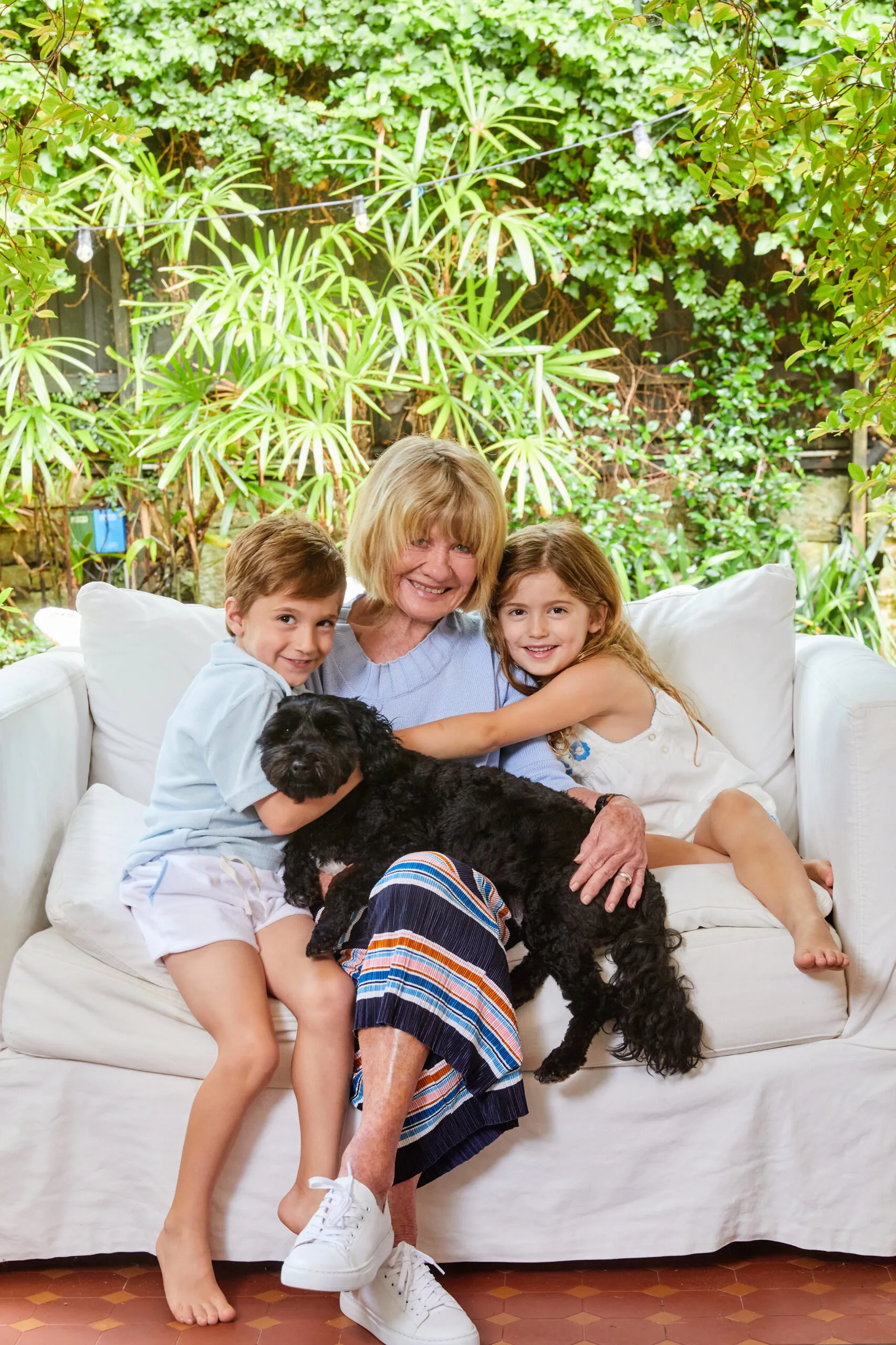
The family business
Josh remembers it a little bit differently.
“I always felt I was going to do it,” he says, “but then Dad had his transplant, and when I finished uni, Dad said, ‘Could you help me build the facility? Put a hard hat on?’ So I spent March to September ’98 putting up gyprock and building 45 new edit suites. I was hopeless at it … Blood, sweat and tears went into that building. And at the end, I said, ‘Alright Dad, I’ve done this, I’ve helped you out, I’m leaving.’ He said, ‘No you’re not.’ He said, ‘That’s your office’. I’d just built my own office.
It was like succession planning.
“You know, he was smart. He bought me a nice, big Dell computer and taught me how to run a business. It was invaluable, that mentorship I had – under his tuition, and Mum’s as well.”
Josh says both his parents were extraordinary mentors.
“Mum was highly inspirational. She’s a trailblazer. Her dedication to her work – as kids, we would often see her, two o’clock in the morning, writing her reviews and hitting those deadlines. She was a hardworking, working mum, raising two boys.”
And like Hans, she was developing an encyclopaedic knowledge of local and international film. Margaret had joined SBS within weeks of its first regular broadcast. “It was wild times,” she chuckles, “but it gave me a lot of opportunities, and I was hungry to learn.”
She shared a tiny “fishbowl of an office” with Basia Bonkowski. And out of that fishbowl came two revolutionary arts programs, Rock Around the World and The Movie Show, bringing international music and filmmaking to our loungerooms, and inspiring unique and diverse local cultures.
Meeting David Stratton
At first, Margaret was employed to produce The Movie Show, but from the outset, she knew David Stratton needed a female sidekick. Many were considered, but none passed muster. Then someone suggested Margaret step into the role. David respected her, and aside from needing a stiff whisky to front the cameras, she was a natural.
“Out of that came an extraordinary relationship, on air and off,” she says. “We probably only had two disagreements in all those years – both about films. He has always been so supportive of me. And when Hans was in the hospital, David was really wonderful. We’ve been loyal to one another, and I would do anything for him – anything.”
In an interview of some years ago, David described Margaret as passionate, a woman of conviction, someone who only says what she truly believes. She has been a staunch believer in freedom of speech and the power of film to change hearts and minds since, as a young filmgoer, she saw I Want to Live!, a Susan Haywood film about an American woman on death row.
“Out of that, I became very politically against capital punishment,” she says. “I found movies politicised me, romanticised me.” And she’s defended their right to do that in a number of run-ins with censors.
Today, the Pomeranz family is an eclectic, expansive entity with a lot to celebrate. As Spectrum turns 60, its recent credits include Boy Swallows Universe, Elvis and Furiosa: A Mad Max Saga. “We started
as this little Australian company,” says Josh, “and we just delivered the biggest film in the world.”
Felix is at the top of his field, too. His credits include Avatar, Life of Pi and all manner of Star Wars prequels. He and Claire live part-time in Wales and part-time on a longboat, moored on a London canal.
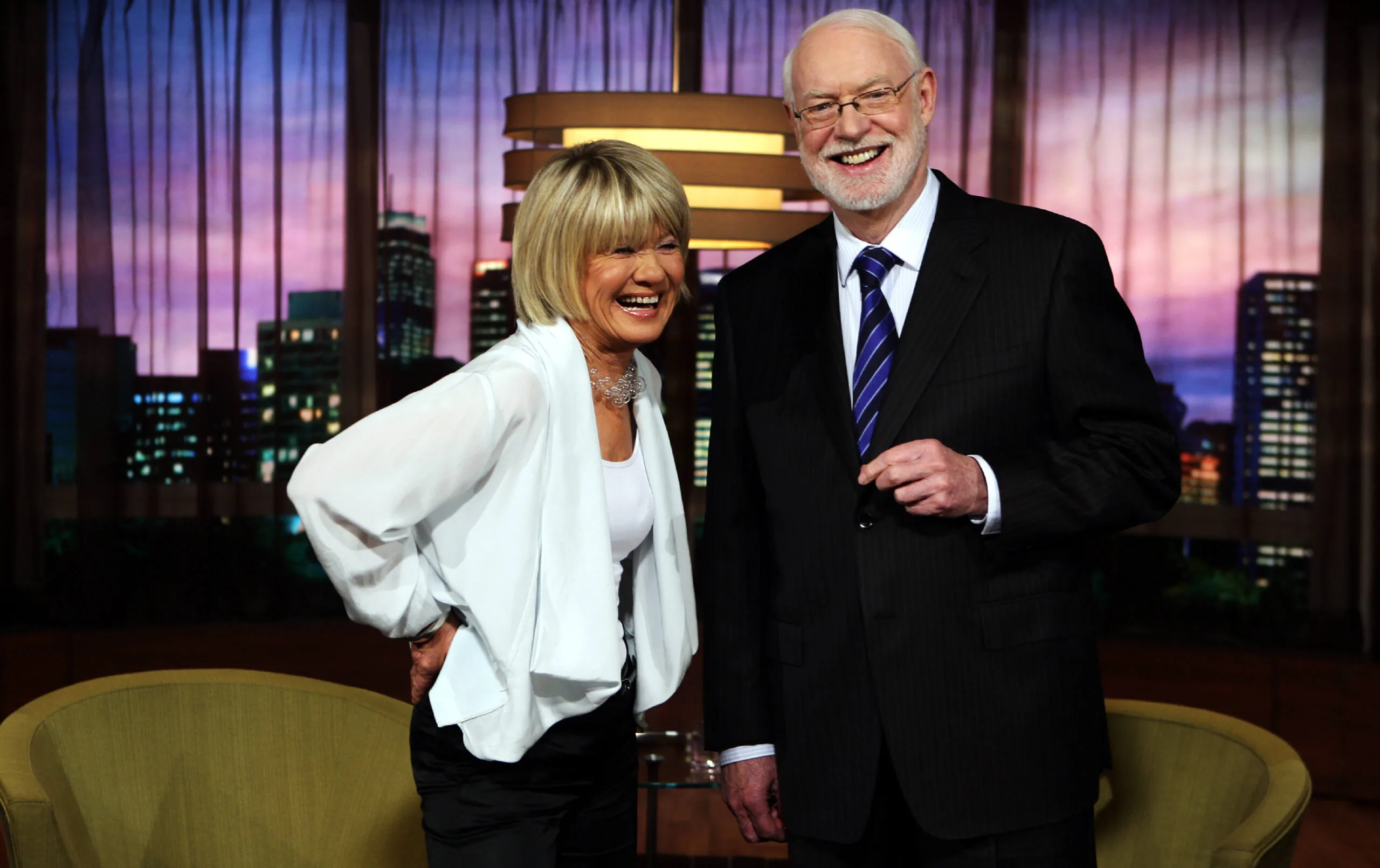
Life after the movies
This year, Pip is not only directing her first feature film, Five Bush Weddings, but she also writes children’s books and has created an adorable girl band for kids, Pom Pom Crew.
Margaret enjoys her role as occasional wry reviewer on The Weekly with Charlie Pickering, and sits on various boards, but she’s happiest enjoying life’s simple pleasures at home on the NSW Central Coast.
“She’d probably be happier playing poker with the local fisherman,” Josh quipped in an interview last year. When that’s mentioned, Margaret laughs uproariously. “Well,” she says. “I do have a poker group, but they’re not so much fishermen as men who fish. I don’t think they’re professional.” Margaret has been known to throw a line out herself. “And the poker club’s a lot of fun,” she adds. “We look forward to it.”
Other things she enjoys: “Family, friends, red wine and cigarettes, in that order. I enjoy cooking and having people around for dinner. And I love walking the dog [Roc, a Tamaruke].”
By all accounts, Margaret is also a phenomenal grandmother.
A growing brood
Andie and Hunter were born, via surrogate, five years ago from two of Pip and Josh’s last three embryos. They’d spent eight years trying to have children, 13 rounds of IVF, miscarriages and heartbreak. And in 2018, one set of twins, Parker and Ellie, were born at 23 weeks but died an hour later in Pip’s arms. To say Andie and Hunter were longed for is an understatement. They are adored, and they adore their grandmother.
“She’s Granny P,” Pip says, smiling widely, “and she’s a great granny. She’s the granny who makes chocolate cake with the kids and Anzac biscuits. She does Lego at Christmas. She did Lego with the kids for hours until it was complete. Oh my gosh, it was so cute – the three of them just sat there for, honestly, two hours. They were building a karaoke machine and a helicopter.”
“And she loves reading books with them,” Josh chimes in, “which she did with us as kids. The Faraway Tree.”
On cue, the twins come tearing around the corner. They’ve been promised a trip to the toy shop if they’re on their best behaviour today, and they have been smiling for the camera and sitting quietly so as not
to disturb the adults for hours.
Pip wrestles Hunter onto her lap. “Hunter, what do you love most about Granny P?” He doesn’t falter: “Baking chocolate cake.”
“She’s really special,” Pip says. “One in a million. We love her.”
The article originally appeared in the April 2025 issue of The Australian Women’s Weekly. Subscribe so you never miss an issue.
